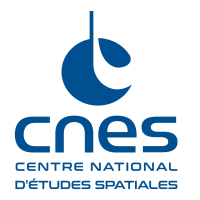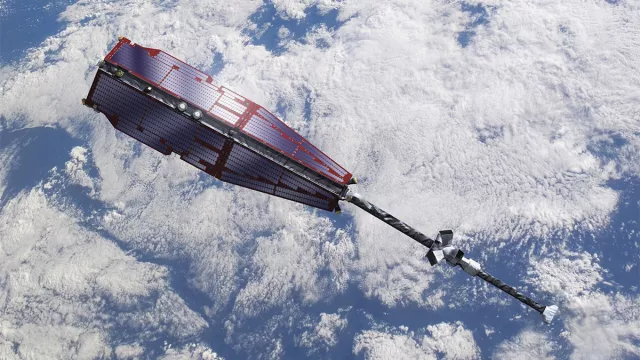Since 2013, a constellation of three European satellites has been investigating the sources of Earth’s magnetic field, in the most detailed study of its kind ever.
Key information
Key figures
- 3 satellites in constellation
- 473 kg: mass of each satellite
- 6 instruments per satellite: 2 magnetometers, star tracker, accelerometer, GPS receiver, electric field instrument
- 1.8 Gb of data delivered daily by each satellite
Key milestones
- 22 November 2013: 3 Swarm satellites launched by Rockot
- January 2012: End of testing of 2nd satellite and start of testing of 3rd satellite
- September 2011: End of testing of 1st Swarm satellite
- 2004: ESA gives go-ahead to include Swarm in its Living Planet programme
Project in brief
Earth’s magnetic field acts as a protective shield, preventing the dangerous portion of the Sun’s rays from reaching the surface of our planet. Without it, there would be no life. Much of our magnetic field is generated by activity at the Earth’s core, but there are other sources too, such as the crust, ionosphere, magnetosphere and even ocean circulation. The problem for scientists lies in differentiating all of these sources, which is exactly what the Swarm mission—part of the European Space Agency’s Earth Explorers programme—has set out to do.
In 2013, three satellites were placed into different orbits at very low altitudes (530 kilometres max.) to help isolate the different sources of Earth’s magnetic field. These ‘space compasses’ are equipped with ultra-precise instruments, including an Absolute Scalar Magnetometer (ASM).
CNES’s role
Developed by CNES in partnership with the LETI electronics, technology and instrumentation laboratory at CEA, the French atomic energy and alternative energies commission, and at the IPGP Earth physics institute, this revolutionary instrument measures both the magnitude and direction of the magnetic field, making it the world’s first “two-in-one” instrument of this kind. Carried on the Swarm satellites on an experimental basis, the instrument may one day be miniaturized and flown on space probes to measure the magnetic fields of other planets in our solar system.
Contacts
ASM/Swarm Exploitation Project Leader
Stéphanie Marel
E-mail: Stephanie.Marel at cnes.fr
Internal Geophysics, Geodynamics & Geodesy subject matter expert
Felix Perosanz
E-mail: felix.perosanz at cnes.fr


